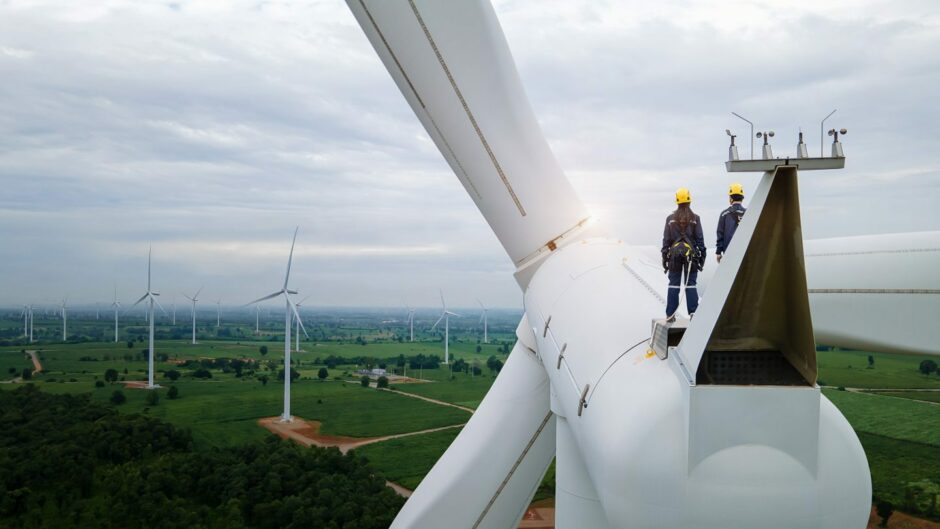
Ahead of a skills summit in Aberdeen this week, employment experts have assessed why Scotland and the wider UK has woes around attracting enough workers in renewable energy.
Earlier this month, Scottish energy secretary Michael Matheson said “access to labour” was the area that worried him most in the bid to deliver projects, particularly as huge GW-scale projects like those linked to ScotWind are soon to be put in the water.
The Scottish Government is hosting a summit in the Granite City on Wednesday with the private sector, regulators, and other parties to try to tackle the problem.
The National Grid estimates 400,000 roles will be needed across the UK by 2050 to build the net zero workforce required, with the supply of skills “primarily coming from the oil and gas industry”, according to PwC.
However only around 270,000 people work in that sector presently, and the 400K target is being exacerbated by a host of other issues.
Baby Boomers and losing talent
One prevalent issue is an “economy-wide baby boomer retirement”, which means around 20% of energy workers are “expected to have exited the workforce by 2030”, PwC said.
The accountancy firm sid the remainder will need to transition to adjacent renewables and the nuclear sector, though they will require further upskilling.
The Energy & Utility Skills membership body estimates more than 75% of women who leave engineering after a break like maternity leave want to return but inflexible working hours create a barrier.
Competition and skills pipeline
Law firm Maxwell Drummond highlighted that competition for STEM-qualified talent is “fierce” and that “every year the energy sector loses out to other industries such as finance and technology”.
The industry also has a challenge of the STEM skills pipeline, which will need to be significantly broadened to ensure requirements are met for the net zero workforce.
“Once a young person opts out of STEM subjects, the route into a net zero career becomes harder,” notes the law firm.
YouGov stats for National Grid found UK adults cited a lack of qualifications as the main barrer to a job tackling climate change.
Another commonly-cited barrier is a lack of a skills passport to ensure workers can more freely move between oil and gas and renewables without having to pay expensive retraining fees where there is skills transferability.
Skills body OPITO is leading an initiative to have a Abuilt and ready to roll out in Q2 of next year, and fully operational following testing by Q4.
Diversity
Maxwell Drummond cited a “lack of diversity in the sector” as one of its main strategic challenges going forward.
“A diverse workforce in a supportive environment drives success – through different perspectives, new ideas and greater creativity – all of which contribute to more effective problem solving.”
Requirements
Data and digital skills, designers and engineers for new technologies and skills in installation of solar and wind projects are among the requirements going forward.
At the Floating Offshore Wind 2022 conference in Aberdeen last month, Michael Matheson said: “Just next month I’ll be hosting an emergency summit which will bring together a whole range of key stakeholders to make sure that we are doing everything that we can to help support those working in the oil and gas sector to transition into renewables.”
